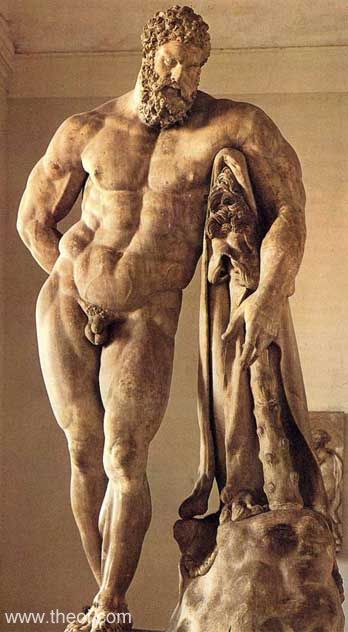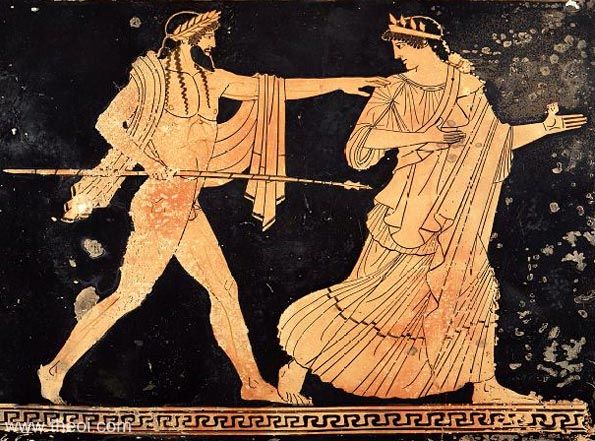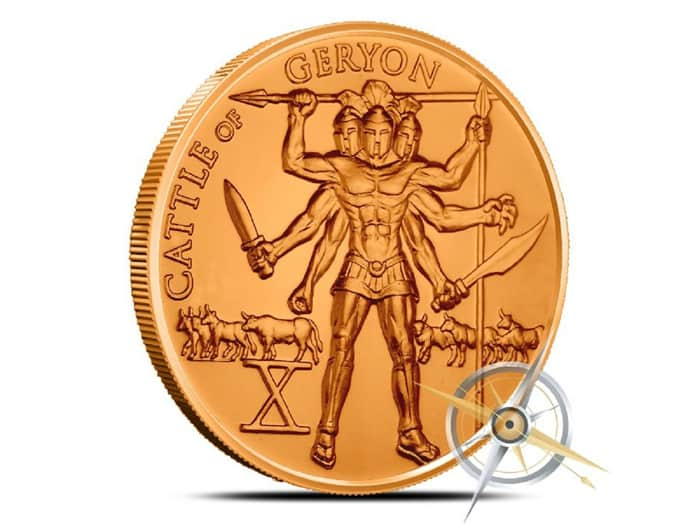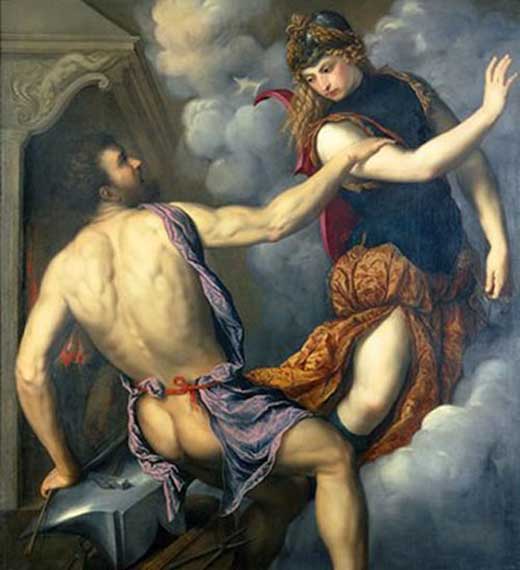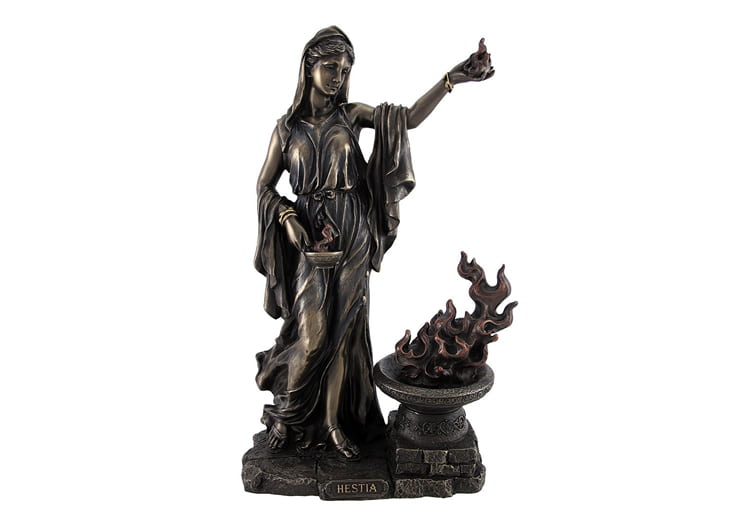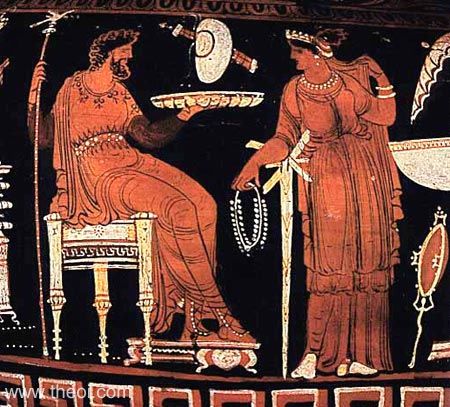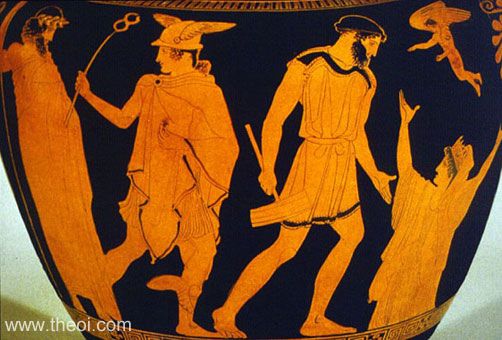God of travel and thieves, Hermes is known for being one of the most clever and mischievous children of Zeus, and his mischief began at an early age. However, in addition to being the god of travel and thieves, what else were Hermes powers, and was his mischief celebrated in Olympus?
God of Thievery
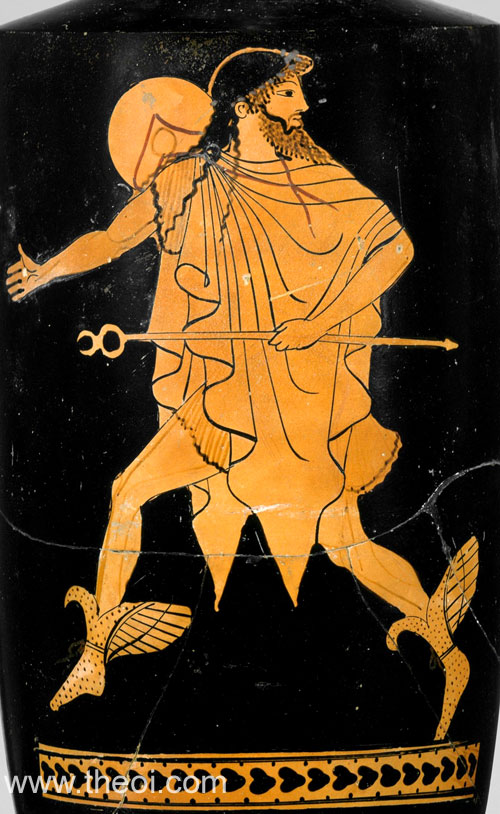
While he was still a baby, Hermes stole Apollo’s herd of cattle and reversed their hooves to make it difficult for Apollo to track. Hermes became the god of thievery as he stole Apollo’s herd of cattle in return for giving Apollo his lyre.
As he grew into an adult, Hermes stole Poseidon’s trident, Artemis’s arrows, and Aphrodite’s belt. When Zeus needed to steal something, he would send Hermes to do the job.
God of Travel
Hermes helped many heroes in Greek mythology during their travels. Hermes gifted Perseus a pair of shoes that would come to be known as Talaria. These shoes are winged sandals that would help Perseus escape the cave of Medusa after she was beheaded.
During Odysseus’s 10-year journey home, Hermes helped Odysseus overcome two dangerous obstacles. The first obstacle that Hermes helped Odysseus overcome was gifting him a magical herb to protect him from Circe’s deliriums. Odysseus was able to overcome another obstacle with the help of Hermes. Hermes convinced Calypso to let Odysseus off her island, which helped Odysseus continue to journey home.
Hermes is depicted with a staff, hat, and winged sandals. As the god of travel, Hermes was responsible for guiding the souls of the dead into the underworld.
God of Messages, Sleep, and Speed
Hermes was the personal messenger among the gods. As he was also the god of travel, Hermes carried a staff. This staff was magical and could put mortals to sleep in order to deliver messages. Mortals who were sleeping would receive messages in their dreams, which made it easier for messages to be received to the recipient.
Hermes was the god of speed, as he had winged sandals that allowed him to fly. His ability to travel quickly and deliver messages made Hermes the messenger of the gods.
God of Gambling
It is believed that Hermes was the god of gambling as he could outwit other gods or humankind through his trickery. If man prayed to Hermes before participating in a gamble, Hermes would offer his assistance.
God of Invention
Hermes can be attributed to inventing the dice, which makes him beloved among gamblers, as well as being the inventor of musical instruments.
Hermes invented the lyre, which is a musical instrument made from a tortoise shell and strings. Hermes traded his lyre in order to keep the herd of cattle he had stolen from his half-brother, Apollo.
Hermes can also be accredited for inventing the Greek alphabet. Hermes would use the wedge formation of cranes as inspiration to draw the letters.
It is also told that Hermes invented sticks fire. Homer describes that Hermes needed to kindle a fire in order to make a sacrifice to the gods. To build a fire, Hermes needed sticks. Hermes invented sticks and placed them in a trench where they caught fire.
The Children of Hermes
- Pan – god of the wild and the flocks.
- Hermaphroditus – born a boy, Hermaphroditus was loved by the female Salmacis, and she prayed the gods would unify them forever. Her prayer was answered as she was joined to Hermaphroditus by becoming one asexual form.
- Abderus – devoured by mares during the eighth labor of Hercules, Abderus was buried by Hercules and establishes the city of Abdera in his honor.
- Autolycus – a successful robber who could transform himself and his goods; a true descendent of his thieving and mischievous father, Hermes.
- Eurodos – a commander to Achilles in the Trojan War.
- Angelia – a lesser-known goddess of messages and proclamations.
Hermes Contribution to Greek Heroes
Hermes played a vital role in the triumphant stories of both Odysseus and Perseus.
Hermes Delivers Messages in The Odyssey
In The Odyssey, Hermes delivers two separate messages during Odysseus’s journey in order to safely deliver him home. The first message is from Hermes to Odysseus. Hermes tells Odysseus that he can protect himself from the Circe’s ability to turn him into an animal if he chews a magical herb. Odysseus follows the advice of Hermes and does not fall victim to being turned into an animal by Circe.
The second message from Hermes during Odysseus’s voyage home is a message to Calypso. Hermes tells Calypso that Zeus has ordered her to free Odysseus from her island so that he can continue his journey home.
Hermes Helps Perseus
As Perseus was ordered by Polydectes to retrieve the head of Medusa, Hermes gave Perseus his pair of winged sandals. These winged sandals helped Perseus escape from Medusa’s cave once he had beheaded her. This kept Perseus alive, as it prevented Medusa’s sisters from catching up with Perseus and killing him.
Hermes as a Whole
Hermes was a jovial trickster who was beloved and useful among the gods. He was known for his many powers which included being the god of travel, gambling, messaging, invention, sleep, speed, and thievery. His array of powers made Hermes a contribution among the gods. Hermes makes an appearance in the myths of two most popular Greek heroes; Perseus and Odysseus.
Hermes appearance was portrayed through his use of a large staff, his winged shoes, and his large, straw-brimmed hat.
